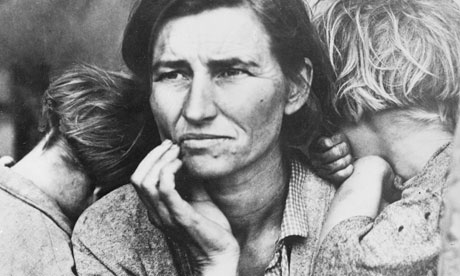Here’s another reason that the national polls don’t matter, even if the polls are taken of just white people.
A new survey of 2,501 adults, “Beyond Guns and God: Understanding the Complexities of the White Working Class in America,” published on Sept. 20 by the Public Religion Research Institute, reveals clearly that the white working class (broadly defined) cannot, at present, be described as a secure Republican constituency.
The P.R.R.I. study focuses on a group it defines as non-Hispanic whites without a four-year college degrees who are paid by the hour or by the job. That’s roughly one-third (36%) of all Americans. The study shows that Romney’s nationwide 48-35 advantage among these voters masks crucial regional differences.
The reason Romney has a strong, 13-point edge among all white working class voters, according to the P.R.R.I. findings, is that in the South his margin is huge. In the rest of the country, the white working class is much more closely divided.
Among southern working class whites, Romney leads by 40 points, 62-22, an extraordinary gap.
Romney leads with this group by 5 in the West and 4 in the Northeast, but trails by 8 in the Midwest. Auto bailout, anyone?
As for why the white working class of Pennsylvania has no time for Mitt Romney, this guy has an answer after my own heart (emphasis mine):
Steve Murphy, a media consultant working on congressional campaigns in Pennsylvania, characterized Romney’s problem somewhat differently: “I don’t think so much the argument is that he is anti-worker. It’s just that they just don’t like him. He seems like he is completely disconnected from people who have to work for a living.”
Why would he be disconnected from people who work for a living? He’s been living off interest and dividends for over a decade. If you exclude the South, Obama is running about even with white working class folks. And I don’t think the Southerners like Romney, either. It’s just that they seem to have decided that there is a white party and a black party. It used to be that the Democratic Party was the white party. Now it’s the Republican Party. I wonder if that will ever change. It’s certainly changing in Virginia and North Carolina, but Gore, Kerry, and Obama couldn’t crack 20% with white voters in the Deep South. I think they’re used to one-party dominance and they like it that way. It’s not too good for accountability though. Once you elect a dolt like Jeff Sessions or David Vitter, you can never get rid of them.
